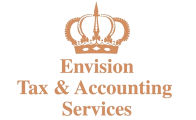Understanding Self-Employment
Have you ever really asked yourself "Am I really self-employed?, Do I really need to pay a Self-Employment Tax?" Here is the answer according the IRS:
Who Is Considered Self-Employed?
|
Self-Employed
You are self-employed if either of the following applies to you: You carry on a trade or business(Full or Part time) as a sole proprietor (even if the part time basis is in addition to your regular job); or You are a member of a partnership or limited liability company that files a Form 1065, U.S. Return of Partnership, that carries on a trade or business.
Independent Contractor
The general rule is that an individual is an independent contractor if (the person for whom the services are performed) has the right to control or direct only the result of the work, and not what will be done and how it will be done or method of accomplishing the result.
People such as lawyers, contractors, subcontractors, public stenographers, and auctioneers who follow an independent trade, business, or profession in which they offer their services to the public, are generally not employees.
However, whether such people are employees or independent contractors depends on the facts in each case. The earnings of a person who is working as an independent contractor are subject to Self-Employment (SE) tax. |
What is a Self-Employment Tax?
· If you are
self-employed you must pay Self-Employment Tax
Self-employment tax (SE tax) is a social security and Medicare
tax primarily for individuals who work for themselves. It is
similar to the social security and Medicare taxes withheld from
the pay of most wage earners.
· If you are
self-employed you must pay Estimated Taxes
This applies even if you also have a full-time or part-time job
and your employer withholds taxes from your wages. Estimated
tax is the method used to pay tax on income that is not subject
to withholding. If you don’t make quarterly payments you can
be penalized for underpayment at the end of the tax year.
So, now you ask yourself Who Must Pay Estimated Taxes?
As a General Rule use this:
You must pay estimated tax for 2010 if both of these apply:
- You expect to owe at least $1,000 in tax for 2010 after
subtracting your withholding and credits.
- You expect your withholding and credits to be less than
the smaller of;
2.
- 90% of the tax to be shown on your 2010 tax return, or
- 100% of the tax shown on your 2009 tax return.
Your 2009 tax return must cover all 12 months.
Note: These percentages may be different if you are a
farmer, fisherman or higher income taxpayer.
…still have question? Contact your business accountants at EnvisionTaxandAccounting.com
